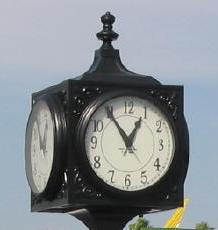
The North Bay Fire & Emergency Services reminds citizens that this weekend when you “Change your Clocks – Change the Batteries in your Smoke and Carbon Monoxide Alarms.”
The message is simple and the habit could be life saving. Most fatal fires occur at night when people are asleep. Often the victims never wake up. Changing smoke alarm batteries at least once a year, testing these alarms and reminding others to do the same are some of the simplest, most effective ways to reduce these tragic deaths and injuries.
“Working smoke alarms provide an early warning and critical extra seconds to escape,” said Fire Prevention Officer Sheri Korn.
“This is particularly important for those most at risk in a home fire, such as children and seniors.”
Working smoke alarms can increase your chances of surviving a fire by up to 50%. And don’t forget the batteries in your carbon monoxide alarms!
While you are changing the batteries, fire department officials advise that you take a moment to check the age of each alarm in your home; smoke and carbon monoxide alarms do not last forever.
Look for a manufacturing date on the back or the side of the alarm. If any smoke alarms (battery operated or hardwired) are over 10 years old, or if the unit is so old its age cannot accurately be determined – replace them right away! Like smoke alarms, carbon monoxide alarms also wear out. They need to be replaced according to the manufacturer’s instructions or every 7 years.


